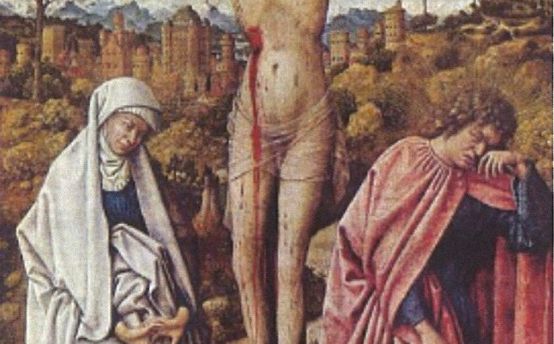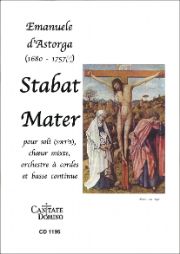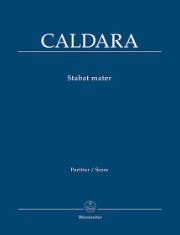Stabat Mater twice
Two sacred choral works by composers who otherwise tended to write for the opera stage.

Emanuele d'Astorga lived from 1680 to 1757(?). Born in Sicily, he moved to Rome, where Scarlatti and Gasparini were working at the time. From here he traveled all over Europe and wrote mainly operas and secular compositions. As a nobleman, he did not accept commissions from secular or ecclesiastical rulers.
The Stabat mater is his only sacred work. It comprises nine movements, four of which are dedicated to the choir: the opening chorus, Eja mater, Virgo virginum and the final chorus with a demanding Amen movement. The solo soprano and solo bass are each given an aria. There are also two duets with SA and AT and a trio with ATB.
Emanuele d'Astorga, Stabat Mater, pour soli (SATB), chœur mixte, orchestre à cordes et basse continue, partition chant-piano, CD 1195, Fr. 18.00, Cantate Domino, Fleurier 2011
Antonio Caldara (1670-1736) achieved great popularity during his lifetime with his numerous operas and oratorios. However, he also composed a large number of smaller vocal works. His Stabat mater is probably the best known and most effective of these.
The new edition is based on an edition by Eusebius Mandyczewski. The clefs and notation have been adapted to modern standards. The instrumental part with two trombones and strings is particularly attractive and effectively supports the character of the work. The basso continuo can also be played by the organ. The vocal scoring consists of four soloists (SATB) and mixed choir. The choral movements are very sustained, with the exception of the opening and closing choruses. The piano reduction and score each comprise 25 pages.
In terms of the size of the individual movements, both works are ideally suited for liturgical use.
Antonio Caldara, Stabat mater; score, BA 8955, € 11.95; piano reduction by Andreas Köhs, BA 8955-90, € 9.95; Bärenreiter, Kassel 2012









